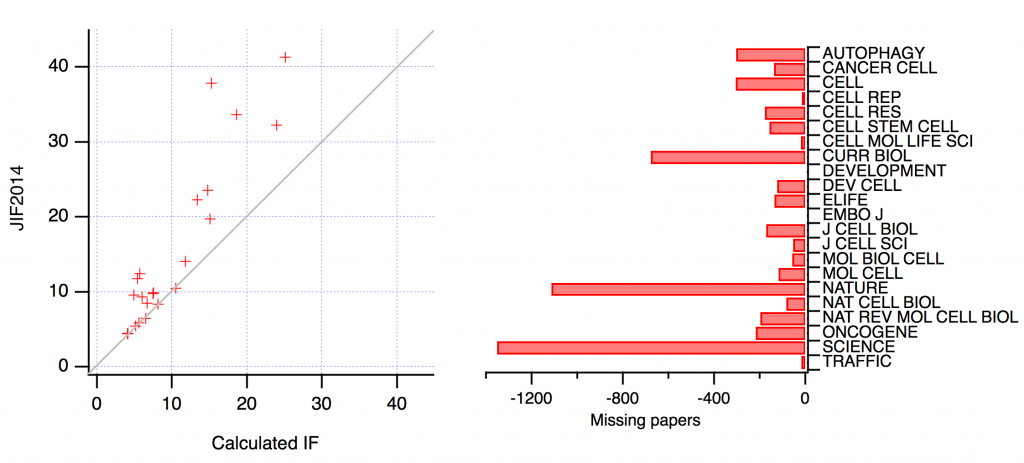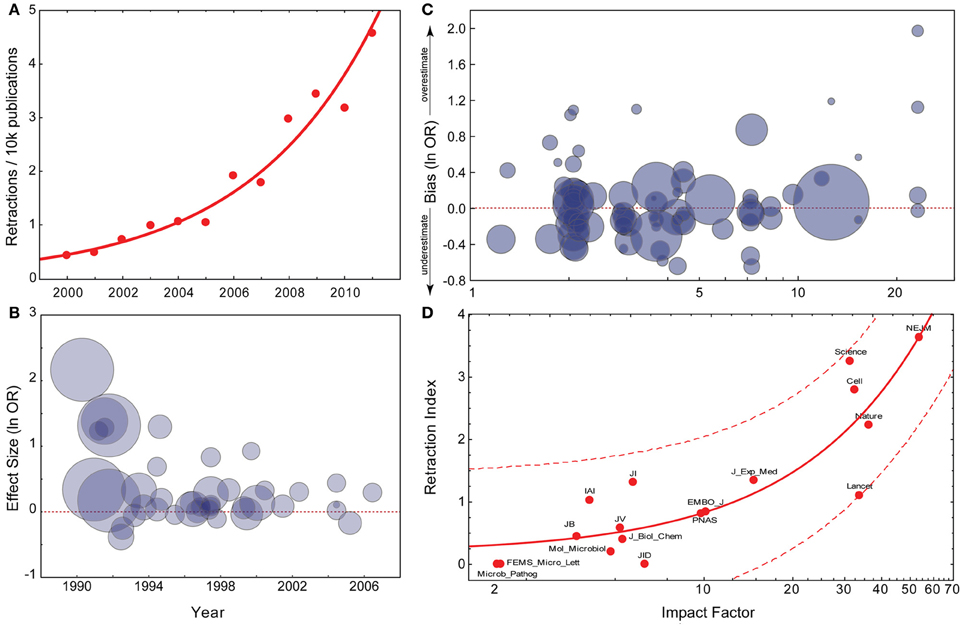
tl;dr: Data from thousands of non-retracted articles indicate that experiments published in higher-ranking journals are less reliable than those reported in ‘lesser’ journals. Vox health reporter Julia Belluz has recently covered the reliability of peer-review.

